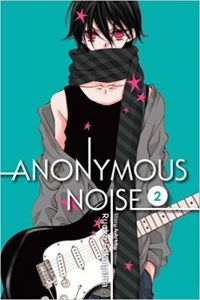Skip Beat! Volume 38 by Yoshiki Nakamura
Skip Beat! is always emotionally harrowing, but after 38 volumes, there are plenty of different character relationships and plot points that can be explored for maximum drama. This volume finally confronts Kyoko’s relationship with her mother. After seeing the ways Kyoko has been damaged by her abandonment as a child throughout Skip Beat! up until this point, this confrontation is a long time coming, and Kyoko’s reactions and resilience show just how far she’s come.
This volume of Skip Beat! starts out with Sho being an idiot, because a little bit of comic relief is useful before delving into childhood trauma. Kyoko and Ren are also firmly locked into the misunderstandings and delicate emotional balance that causes any interaction between them to be weighted down with layers of unspoken feelings, elements of comfort, and pure anxiety. Kyoko’s encounter with Ren is helping build up her up psychologically, and she comments “I’ll prepare myself body and spirit, since I’ll be fighting a psywar in a blizzard”.
As Kyoko heads towards meeting her mother, she’s keeps her “Love Me” stamp with an infinite number of points that she received from Ren close by, like a token to take into battle. Kyoko first has a conversation with one of her mother’s co-workers in leading up to the main event. Kyoko begins to wonder about her father, and if her mother Saena experienced something similar to the rejection that she experienced from Sho, that kicked off her desire for vengeance. Saena is caught up in biases and assumptions, thinking that Kyoko dropped out of school and that she had a physical relationship with Sho. Saena’s stubbornness and strong facade makes it difficult to communicate with her.
As Kyoko and Saena face off, Nakamura’s portrayal of demons lurking in the background of the conversation and dramatic micro-expressions shows the charged nature of the confrontation. Their conversation is interrupted by flashbacks of a younger Saena struggling to make her way as a lawyer, and seemingly torn between her job and the idea of love. While Saena’s backstory might place her actions in context, it doesn’t really the cruel way she abandoned her daughter. This storyline is obviously going to be stretched out over several volumes, and I have to admit I’m feeling more anxious about Kyoko than I have in awhile! I’m hoping that the maturity that she’s built up over time helps her deal with whatever emotional bombshell her mother is about to drop. Skip Beat! continues to be extremely rewarding for readers, and I’m happy it is still going so strong after 38 volumes.





Recent Comments